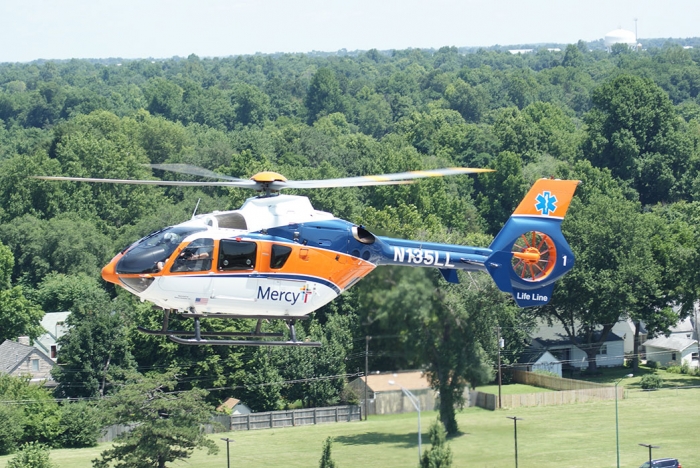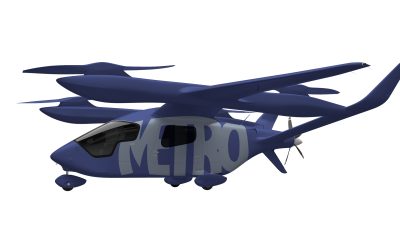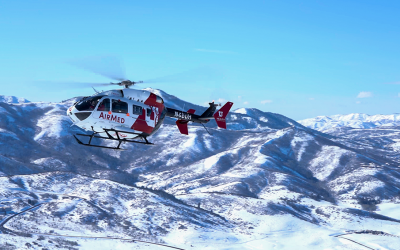December 18, 2015
With a fleet of the most technologically-advanced medical helicopters in the region, Mercy has made yet another upgrade to respond to more patients in more weather conditions.
Three years ago, Mercy unveiled its first three EC 135 P2+ helicopters to serve southwest Missouri. Equipped with weather radar, auto pilot, terrain awareness and global positioning satellite (GPS) technology, the helicopters can fly when there’s reduced visibility and low clouds.
“When we get the call to help a patient, we want to get in the air and respond,” said DJ Satterfield, director of Mercy Life Line Air Medical Service. “The addition of those helicopters meant our pilots could fly using Instrument Flight Rules (IFR), just like commercial airline pilots do – allowing technology to guide us. We can often fly when others can’t, making weather less of a factor in getting help to patients.”
Since then, the fleet has expanded and gotten another technology upgrade: its own private airspace GPS navigation system. Engineers mapped out the entire region using GPS technology and created a series of routes for pilots to follow. The pre-designated flight patterns can be navigated using only aircraft instruments.
“Before this upgrade, we could often land at small airports using GPS, but not always directly at a hospital,” explained Satterfield. “The ambulance would meet us and take the patient from there. While that was certainly better than not flying them at all, now we can land in even more places in inclement weather.”
The GPS navigation system includes landing spots at Mercy Hospital Lebanon in Lebanon, Missouri; Phelps County Regional Medical Center in Rolla, Missouri; Mercy Hospital St. Louis in St. Louis, Missouri; Mercy Hospital Berryville in Berryville, Arkansas; North Arkansas Regional Medical Center in Harrison, Arkansas, Washington Regional in Fayetteville, Arkansas; Mercy Hospital Northwest Arkansas in Rogers, Arkansas; Citizens Memorial Healthcare in Bolivar, Missouri, and two spots at Mercy Hospital Springfield. The project took three years and involved Mercy, Metro Aviation, Hickok and Associates and the Federal Aviation Administration (FAA). The FAA gave final approval to the plan in October. Work has begun on a second phase, which will add even more locations to the network.
“We are so proud to say we’ve been accident-free since our inception in July of 1984, and our pilots have trained tirelessly to keep it that way. This upgrade strengthens our commitment to safety for our patients and our crews,” Satterfield said.
With the addition of Life Line helicopters in the Joplin, Missouri, and Rogers, Arkansas, areas, Mercy’s fleet now serves southwest Missouri, northwest Arkansas, southeast Kansas and northeast Oklahoma. Click here for more information about Mercy Life Line.
Stay Updated with Metro
Metro Aviation Orders BETA Technologies’ eVTOL for Medical Transport
Metro Aviation Orders BETA Technologies’ eVTOL for Medical Transport November 4, 2024 Metro has placed a deposit-backed order for up to 20 A250 aircraft, with plans to integrate the airframe into its existing fleet. Metro Aviation, the world’s largest family-owned,...
Metro Aviation attends AMTC in Salt Lake City
Metro Aviation attends AMTC in Salt Lake City November 3, 2024 Metro Aviation, a leader in air medical transport solutions, is back on the show floor at the Air Medical Transport Conference (AMTC), taking place this week. The company is proud to display two EC145...
Metro Welcomes New Director of Safety
Metro announces new director of safety October 15, 2024 Metro Aviation has appointed Brady Carpenter as Director of Safety. Brady joined Metro Aviation in 2016 as an Operational Control Specialist before joining the Safety Department as the Flight Operations Quality...
Download Brochure
Metro Aviation is constantly growing our capabilities and expanding our reach. Metro holds more than 30 Supplemental type Certificates (STC) and completes about 35 aircraft each year for U.S. customers anf global clients.





